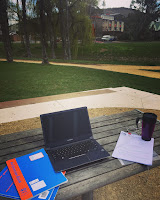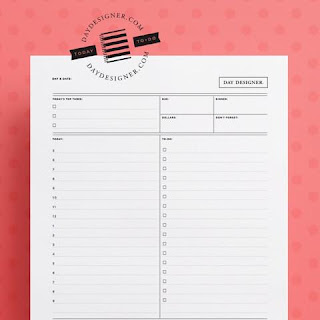The
topic may appear to be straightforward but moving from a school environment to
an office can be quite confronting to some. I thought I would go over some
quick tips for coping for your first few weeks in an office environment.
1. The
noise level is quiet
When
you’re studying getting to control the noise in your environment is pretty
standard. More over, if you’re at school you can always tell your friends
nearby to be quiet if they’re disturbing you. In an office that’s not always
the case
Depending
on whether you’re in a cubicle or hot desking things can get pretty noisy. Not
only are there employees who some how forget to put their phone on silent every
day – but you can also over hear the inevitable work calls where you can’t move
them to another room because they need /all/ that stuff on their desk.
2. Doors
open and closed is an issue
Some
how on this blog I always end up talking about the weirdest of things. I don’t
know if it’s just that I’m a little bit too picky – but one of the things that
I’ve really struggled with is knowing when to shut someone’s door.
There
seems to be a lot of unwritten rules about this. Generally, we’d think phone
call – shut the door, no call open the door. But…depending on where you work,
who it is and how tense the conversation is you can be opening and closing that
door all day long!
If
you’re interning be prepared for a lot of awkward hesitations in the doorway.
Whether you’re knocking on an open door, closed door, door way, or just staring
at the people inside hoping they give you an idea of whether you’re meant to be
inside or not – there’s a lot of awkwardness when you first arrived in an
office.
3. The
printer is always broken
If
you thought that your library printer was never working – then prepare yourself
for the office printer. Not only are you going to be cursing out a printer that
never works, you’re going to be joining a group of people who are overly tense
and also cursing out a printer that is never working.
The
exciting thing is – there’s always one person in the office that everyone expects
to be able to fix the printer. Fingers crossed it’s not the new intern who has
no idea what they’re doing! More often than not by the time the printer is
actually printing pieces of paper out there’s 100 documents backed up in the
system and you’re going to be using up a forest worth of paper on documents
people have already forgotten about.
4. Emailing
vs. talking
Continuing
on with the theme of administrative issues – whether you should email someone
or talk to them is a new issue that you never imagined would exist. Except
somehow when you come to work with someone within a 100 square meter radius it’s
an issue. It’s either an issue because 1. You just made a coffee and really can’t
be bothered to get up to talk to them or 2. If you go to talk to them they’re
going to want to see it and the printer isn’t working.
But
if you do print it you a. have to worry that it’s not going to get through to
them and b. they may have questions which starts a confusingly long email chain
that gets everyone aggravated.
Choose
wisely.
But
all in all, it’s fun working with lots of people who are passionate about what
they’re doing. An internship can introduce you to industry challenges, critical
flaws in your education and reveal whether you truly enjoy the work or if it’s
time to adjust your career trajectory.
Don’t
shy away from an opportunity to work in an office environment – embrace the challenge
and let me know how you go either on my Instagram; lulu_hensman or my tumblr
thisisluluh.tumblr.com
Or
leave a comment below!


















